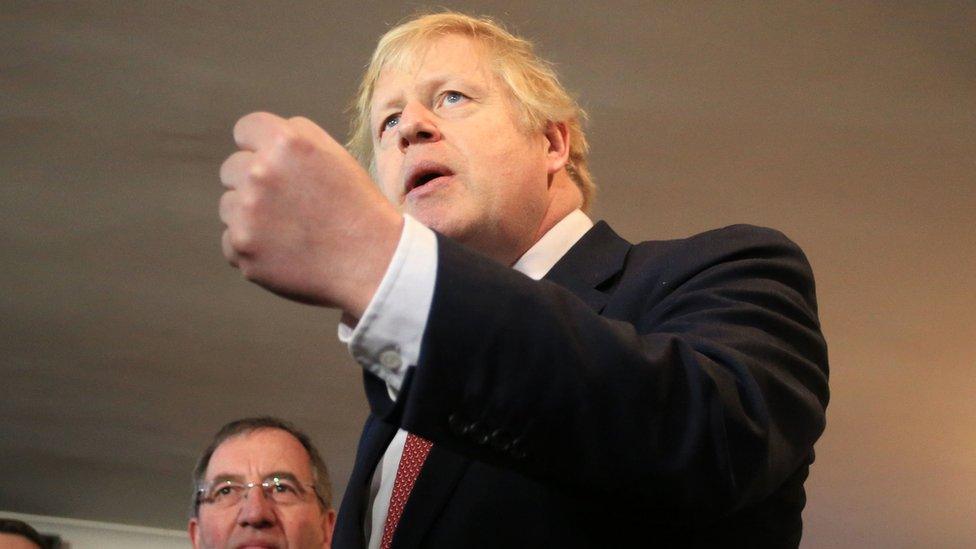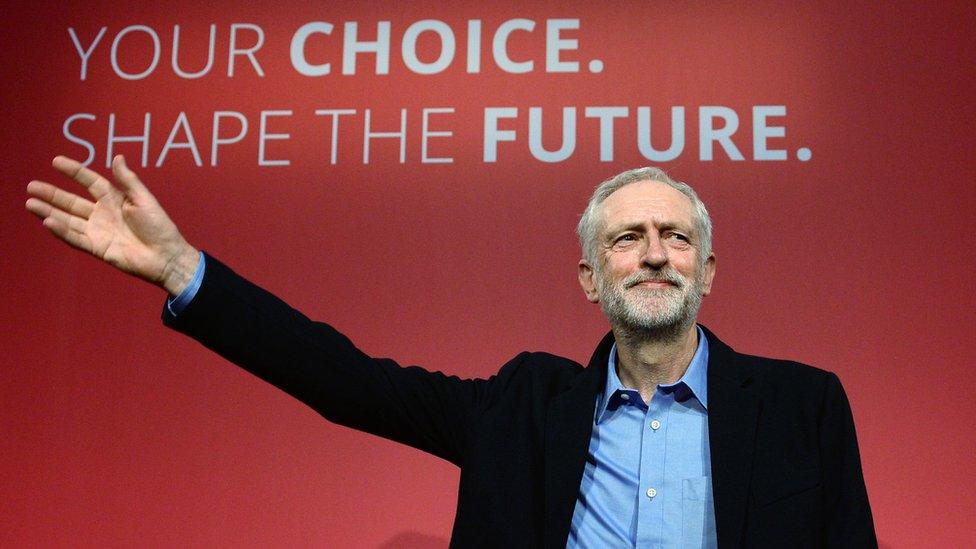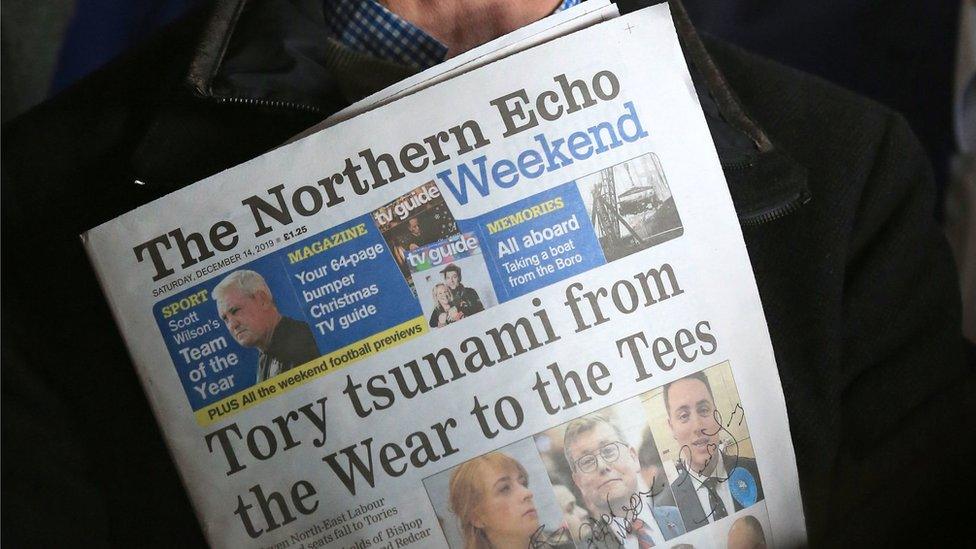Can the Tories deepen shallow roots in the North East?
- Published

Boris Johnson visited the North East the day after his election victory
It is a phrase that has been repeated many times to me during two decades of reporting politics in the North East - the Tories can't win here.
Brexit Party leader Nigel Farage said it again when he came to County Durham on the eve of the 2019 campaign.
He was wrong.
The Conservatives took seven Labour seats, and had it not been for the Brexit Party complicating the picture, they might have taken more.
There are now 10 Tory MPs in the region - the most since 1935. This was the North's version of what happened in the south of England during Labour's 1997 win.
Candidates who had never expected to triumph have suddenly found themselves with a new career.
Take Jacob Young, the 26-year-old who turned Labour's supposedly safe Redcar seat blue.
He has handed in his notice in at the Teesside chemical plant where he works, but will still be working a Christmas Day shift he had been rostered to do.
And these 2019 generation Tories do feel different. Many are rooted in their communities, with northern heritage and a local outlook. Yes, there's a lawyer, but also an NHS worker.
That sense people were voting for candidates who cared about where they lived certainly helped win the apparently unwinnable.
Armed Forces factor
Then there was the context of this election. Tory and Labour candidates told me the prime minister's "get Brexit done" mantra was parroted back to them by voter after voter.
Those who wanted out of the European Union were always unlikely to back Labour, but they were also joined by those weary of the debate.
Then there was the Labour leader. Their candidates said if they managed to get past the hostility on Brexit, they hit a brick wall when it came to Jeremy Corbyn.

Labour leader Jeremy Corbyn did not go down well on the doorstep
Many of the new Conservative converts came from working class areas. Places loyal to Labour, but even more committed to their country.
The North East has always been a rich source for army recruitment. There are many families with military connections. For them, Mr Corbyn was just not patriotic enough to lead.
The charge that he sided too often with the nation's enemies - fair or not - hit home.
And appeals to memories of Thatcherism fell flat. Folk memory of the 1980s struggles have faded, and now Tory MPs represent ex-steel towns like Consett and former mining communities like Blyth.
But was there genuine enthusiasm for Boris Johnson? I am not sure. We never really got to test out the thesis as the PM's three carefully-controlled campaign appearances kept him away from too many members of the public.
So there is a sense, as the prime minister has acknowledged, that some previously-Labour voters have been prepared to lend him their votes to deliver Brexit and keep Mr Corbyn away from power.
'Champions' of the area
But perhaps some seeds of victory were sown a little earlier too.
Although the June 2017 general election was a huge disappointment for the region's Tories, the previous month's local elections were a triumph.
Their candidate, Ben Houchen, pulled off the biggest shock becoming the first Tees Valley Mayor - an election Labour expected to win.
He has proved adept at getting into the local media, but he has also honoured campaign pledges his rivals said were unachievable.
And some of those pledges do not feel very traditionally Tory.
Mr Houchen bought the local airport to try and arrest its apparent terminal decline under a private sector owner. There are early signs of revival under public ownership.
He has called for intervention to save the area's steel industry, and demanded contracts for local trains to go to County Durham-based Hitachi.

The election results were front page news
These are not the actions of a Conservative prepared to entirely trust the market. But it also means he has looked and sounded like a champion for the area.
In the same election, the Conservatives defeated Labour to take control of Northumberland Council.
Their regime may have made fewer headlines than Mayor Houchen, but so far it has exuded an air of quiet competence.
Both regimes may well have helped detoxify the Conservative brand in the North East. Maybe it's no coincidence then that Blyth Valley in Northumberland, and constituencies in and close to Tees Valley, were prepared to vote Conservative.
In contrast, many of the Labour councils have had to oversee nine years of cuts in their communities. But instead of pinning the blame on government-imposed austerity, some voters seem to have started asking whether they are getting a good deal out of generations of loyalty to Labour.
So in this year's local elections, Labour lost control of councils like Hartlepool, Middlesbrough, Redcar and Cleveland, and Darlington.
Now the Conservatives may be sensing an opportunity to colonise Labour's heartland. Last week's results have left even more seats teetering on the brink. Small majorities the Conservatives could conquer in 2024.
And empires do end. You only have to look over the border into Scotland to see how lost ground for Labour can become a wipe out.
Shallow roots
The prime minister then is already talking about big investment in the north - the warm words of the Northern Powerhouse turned into action.
But promises must be delivered to make borrowed votes permanent, and any infrastructure investment takes time.
And then there is getting Brexit done.
Every economic study suggests the North East and its export-led economy has the most at stake. The likes of Nissan cannot wait years for trade deals, and they cannot afford delays of a few minutes for parts to clear ports.
A Brexit that costs jobs, and reduces the ability to invest in the North East's public services, could see Labour bounce back.
The Conservative roots remain shallow in the North East. The PM and his new band of MPs will need to dig in hard and make rhetoric real to make them permanent.
